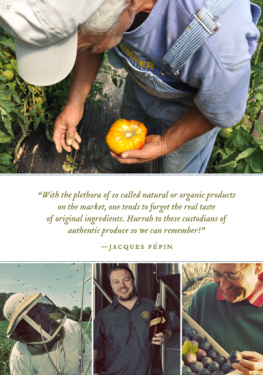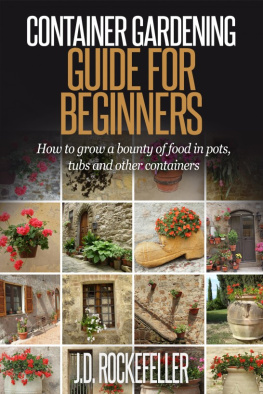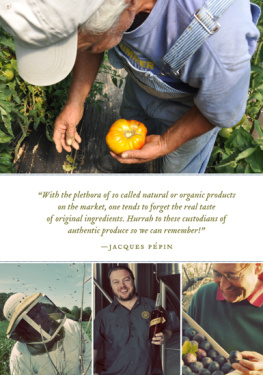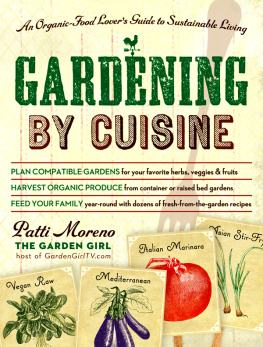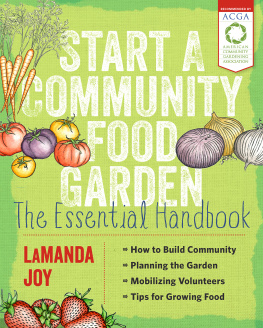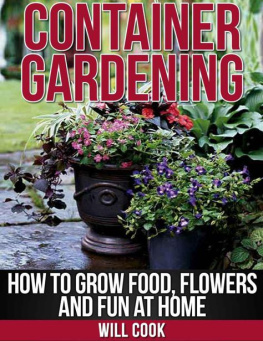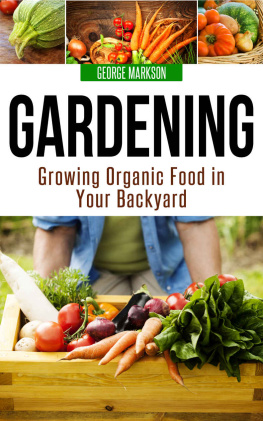Pellegrini - The Food-Lovers Garden
Here you can read online Pellegrini - The Food-Lovers Garden full text of the book (entire story) in english for free. Download pdf and epub, get meaning, cover and reviews about this ebook. City: Place of publication not identified, year: 1970, publisher: Knopf Doubleday Publishing Group;Random House;Knopf, genre: Children. Description of the work, (preface) as well as reviews are available. Best literature library LitArk.com created for fans of good reading and offers a wide selection of genres:
Romance novel
Science fiction
Adventure
Detective
Science
History
Home and family
Prose
Art
Politics
Computer
Non-fiction
Religion
Business
Children
Humor
Choose a favorite category and find really read worthwhile books. Enjoy immersion in the world of imagination, feel the emotions of the characters or learn something new for yourself, make an fascinating discovery.

- Book:The Food-Lovers Garden
- Author:
- Publisher:Knopf Doubleday Publishing Group;Random House;Knopf
- Genre:
- Year:1970
- City:Place of publication not identified
- Rating:5 / 5
- Favourites:Add to favourites
- Your mark:
- 100
- 1
- 2
- 3
- 4
- 5
The Food-Lovers Garden: summary, description and annotation
We offer to read an annotation, description, summary or preface (depends on what the author of the book "The Food-Lovers Garden" wrote himself). If you haven't found the necessary information about the book — write in the comments, we will try to find it.
Pellegrini: author's other books
Who wrote The Food-Lovers Garden? Find out the surname, the name of the author of the book and a list of all author's works by series.
The Food-Lovers Garden — read online for free the complete book (whole text) full work
Below is the text of the book, divided by pages. System saving the place of the last page read, allows you to conveniently read the book "The Food-Lovers Garden" online for free, without having to search again every time where you left off. Put a bookmark, and you can go to the page where you finished reading at any time.
Font size:
Interval:
Bookmark:
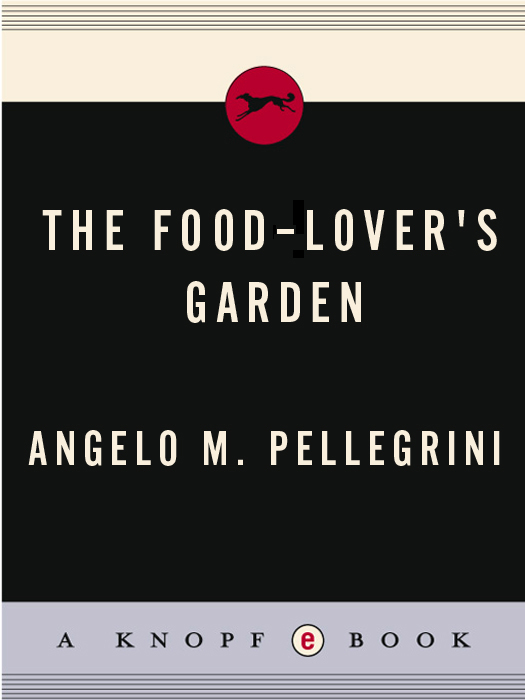
WASHINGTON: PROFILE OF A STATE (1967)
WINE AND THE GOOD LIFE (1965)
AMERICANS BY CHOICE (1956)
IMMIGRANTS RETURN (1951)
THE UNPREJUDICED PALATE (1948)
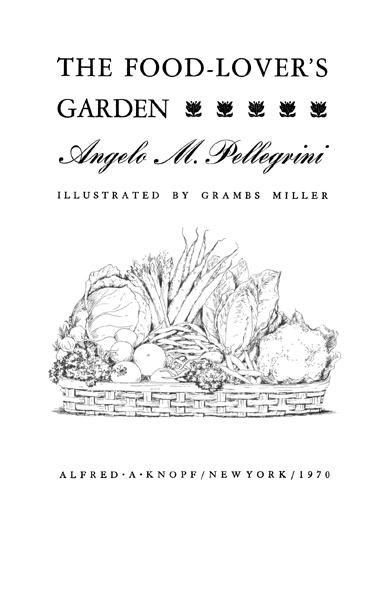
THIS IS A BORZOI BOOK
PUBLISHED BY ALFRED A. KNOPF, INC.

Copyright 1970 by Angelo M. Pellegrini
All rights reserved under International and Pan-American Copyright Conventions.
Published in the United States by Alfred A. Knopf, Inc., New York, and simultaneously in Canada by Random House of Canada Limited, Toronto.
Distributed by Random House, Inc., New York.
Library of Congress Catalog Card Number: 76-106621
eISBN: 978-0-307-82025-9
v3.1
THIS BOOK IS FOR MY EDITOR,
Judith B. Jones
OF GARDENING IN GENERAL
OF THE LOVELY AROMATICS
OF HERBACEOUS EDIBLES
Why a Kitchen Garden?
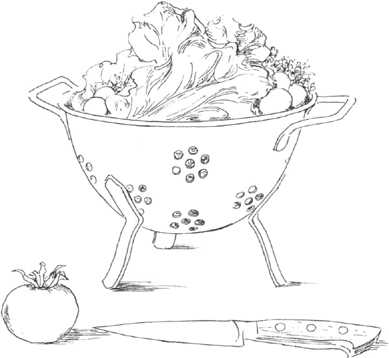
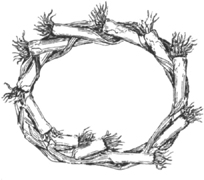
Why should one bother to till a cut of the land on which he lives and grow much of what he needs for his daily dinner? The reasons are several, but the most compelling is this: the kitchen garden is an indispensable aid in the attainment of a day-by-day good cuisine. Or put it this way: without a kitchen gardenthat plot of land on which one grows herbs, vegetables, and some fruitit is not possible to produce decent and savory food for the dinner table. This generalization admits no exceptions; it is as sound as the assertion that a stone thrown in the air must return to earth. And since a fine dinner after the days labor contributes so much to ones well-being, I may state, further, that the kitchen garden is an indispensable aid in the achievement of the Good Life. Are you convinced? Of course! Then you must procure the necessary tools and become a gardener.
In urging this, I assume that you are a normal human being, male or female, young enough to stand on your feet and work with your hands; but most of all I must assume that you are eager to welcome hints on how you can improve your cuisine. And I must also cherish the hope that, should you be rather abstemious, or of that wretched crew who take pride in eating anything, this little volume may persuade you to join that enlightened company who, as Dr. Johnson put it two hundred years ago, mind their belly very studiously and very carefully. In other words, I assume that you are one of us; and I therefore urge you with confidence to build yourself a garden and become an expert, happy gardener.
Let us first be clear on what we mean by the word garden. The dictionary defines it as a plot of ground devoted to the cultivation of useful or ornamental plants. There is, of course, a distinction between plants that are ornamental and plants that are useful; when I use the word gardening my reference is invariably to the cultivation of those plants, such as asparagus, that are used as food; and those, such as rosemary, that are used to make food taste good. In other words, my approach to gardening is fundamentally utilitarian. I cultivate as much of the necessary herbs, vegetables, and fruit as time and place and space will allow, in order to enjoy a fine, even a distinguished, dinner every day.
Fundamentally utilitarian, yes. However, I am not unaware of the aesthetics of gardening. I am easily moved by the beauty in a bed of parsley, a head of cauliflower, a patch of healthy, succulent endive in vigorous growth. Even as the poets heart leaped up when he beheld a host of golden daffodils, so mine throbs when I behold a row of meticulously cultivated cauliflowers, their compact, snow-white heads set in leafy ruffs of emerald green. So please dont put me down as an insensitive Benthamite. My sense of what is useful does not exclude a sense of what is lovely. I cultivate a garden for its utility, to eat that which I grow, but there is also pleasure in doing it and in beholding the fruit of my labor. When, during the growing season, I go to my garden, as I do nearly every day, and look with pleasure at my bed of parsley, am I moved primarily by its indubitable loveliness? Or is my heart throb occasioned by the thought of how marvelously the minced parsley leaves will enhance the flavor of my omelet? The question is not fair, and I invoke the Fifth. In obedience to my nature I till the soil; I sow and reap the total harvest.
I said that you must build a garden, and build is the proper word. Wherever you may live, on whatever plot of land that is your own, you will have to convert a portion of that land into a garden plot. With pick and shovel, rake and hoe and barrow, you may have to dig up a portion of the lawn, level a slope, build retaining walls, wheel out hardpan and rocks and wheel in fine topsoil, or make heavy earth more friable by raking into it sandy soil rich in humus. With tools and with your hands you will give shape to your garden and prepare it to receive the seed. You will build your garden.
There will be joy in the building; there will be joy in contemplating that which you have built; there will be joy in the sowing; there will be joy in following the progress from seed into fruit; there will be joy in the harvest; and there will be the greatest pleasure in eating the fruit of your labor. If you have not known this pleasure, then you have been deprived of much that is good for both the body and the soul! Therefore, decide and act. Dont be a Prufrock wavering in indecision, measuring out your life with a coffee spoon. The shovel is the measure appropriate to a man. Strip to the waist; let the sweat pour down your brow; dig in; put down your roots. And enjoy a manifold harvest.
So, having taken in hand the shovel and the hoe, you have become a dedicated gardener and a member of an ancient and numerous society. The Great Creator built the first garden and created the prototypes of the complete gardener. Man first appears not in an armory or in a countinghouse but in a garden; and when he had sinned and lost his Eden, he was sent forth to till the ground whence he was taken, and to earn his bread by the sweat of his brow. The Old Testament is so rich in horticultural imagery that one may fairly think of the prophets and psalmists as dedicated gardeners: They that have gathered the corn shall eat it and praise the Lord; and they that have grown the wine shall drink it in the courts of my holiness.
A glance at the considerable library of garden literature, and it is at once obvious that some of the wisest and best of mankind have delighted in gardens. Horace had his garden and his orchard; Virgil celebrated agricultural pursuits in his Georgics. Shakespeare compared competent kings to complete gardeners and well-ordered commonwealths to well-cultivated gardens; and when his Brutus was troubled and could not sleep, Shakespeare sent him to his garden to ponder his dilemma. John Evelyn, the famous diarist, Robert Walpole, the first Earl of Oxford, William Temple, the seventeenth-century statesman, and Sir Francis Bacon are a few among the many illustrious men who have delighted in gardens. The Baron Bettino Ricasoli, in the middle of the nineteenth century, withdrew from the turbulence of public affairs and settled in Brolio Castle in the Chianti region, where he devoted the rest of his life to agronomy and viticulture. The amiable Londoner Charles Lamb, when he went to live in the country, took pleasure in cultivating a small plot of ground behind his house and watched with interest the progress toward maturity of his Windsor pears and jargonelles.
Font size:
Interval:
Bookmark:
Similar books «The Food-Lovers Garden»
Look at similar books to The Food-Lovers Garden. We have selected literature similar in name and meaning in the hope of providing readers with more options to find new, interesting, not yet read works.
Discussion, reviews of the book The Food-Lovers Garden and just readers' own opinions. Leave your comments, write what you think about the work, its meaning or the main characters. Specify what exactly you liked and what you didn't like, and why you think so.


